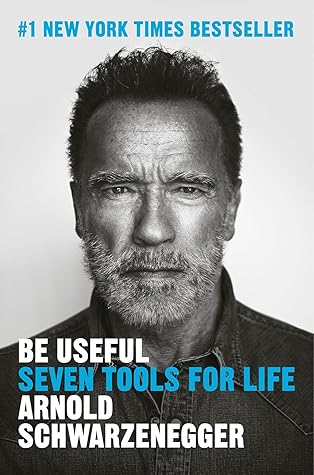More on this book
Community
Kindle Notes & Highlights
They involve knowing where you want to go and how you’re going to get there, as well as having the willingness to do the work and the ability to communicate to the people you care about that the journey you want to bring them on is worth the effort. They include the capacity to shift gears when the journey hits a roadblock, and the ability to keep an open mind and learn from your surroundings to find new ways through. And most important of all, once you get where you’re trying to go, they demand that you acknowledge all the help you had along the way and that you give back accordingly.
Vision is the most important thing. Vision is purpose and meaning. To have a clear vision is to have a picture of what you want your life to look like and a plan for how to get there.
If you can’t find what you’re looking for, at least give it a chance to find you.
“No man is more unhappy,” the Stoic philosopher Seneca said, “than he who never faces adversity. For he is not permitted to prove himself.”
You have a choice with the naysayers you face on the road to achieving your goals. You can ignore them or you can use them, you just can’t ever believe them.
A life of smaller dreams that I half-assed, doing some version of what everyone else does? That sounds like a slow death to me. I want no part of it, and neither should you.
(Making your dream come true often requires the same effort as preventing a nightmare scenario from occurring.)
Woody Allen said that 80 percent of success in life is showing up. Before him, Thomas Edison said that 90 percent of success is perspiration. They’re not wrong, but they can’t both be right. The math doesn’t work. I actually think it was the American country singer and sausage maker Jimmy Dean who nailed it. He said, “Do what you say you’re going to do, and try to do it a little better than you said you would.”
Not surprisingly, the people who complain the most about not having enough time do the least amount of work. Let me put it another way: busyness is bullshit. We’re all “busy.” We all have things to do every day. Obligations and responsibilities.
Turn your TV off. Throw your machines out the window. Save your excuses for someone who cares. Get to work.
Embrace who you are! Own your story! Even if you don’t like it. Even if it’s bad, and you’re ashamed. If you run away and hide from your past, if you deny your story and try to sell a different one, even if you mean well, it just makes you seem like a con artist. Or worse, a politician.
And when exactly has complaining ever gotten someone closer to achieving their goals? You work to make a dream come true, you don’t whine it into existence.
The famous Austrian psychologist and Holocaust survivor Viktor Frankl believed that, while we can’t control many things that happen in our lives, we always have the power to control how we feel and what we do about them.
If you can choose joy over jealousy, happiness over hate, love over resentment, positivity over negativity, then you have the tools to make the best of any situation, even one that feels like failure.
In the Bible: “Let every man be swift to hear, slow to speak.”
Ernest Hemingway said, “When people talk, listen completely. Most people never listen.”
I’m not alone in this. We are all here thanks to the contributions of other people. Even if you never had a positive influence in your life; even if everyone you’ve ever run into was an obstacle or an enemy or they did nothing but hurt you—they have all still taught you something. That you’re a survivor. That you’re better than that, better than them. They showed you what not to do and who not to be. You are here today, right now, reading this book trying to better yourself, because of the people in your life—for better and for worse.


